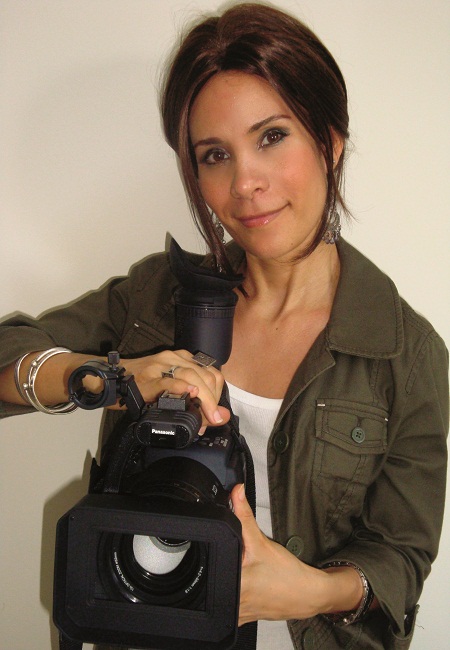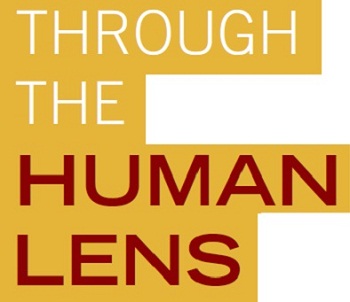Moving her camera around the automotive repair shop, in Cambridge, Massachusetts, Jehan Harney ’93 zooms in on the metal sculptures that fuse together symbols from Christianity, Judaism and Islam. In her documentary, Soul Mechanic, Harney tells the story of Iranian immigrant Mahmood Rezaei- An award-winning Egyptian-American TV journalist and filmmaker, Harney focuses her productions on the human experience, tackling topics from immigration and assimilation to forced sterilization and the aftermath of war. Harney started her career as a press officer for the Fulbright Commission in Egypt and was simultaneously broadcasting English news at the Egyptian Radio. After earning a fellowship to study at the American University in Washington, D.C. where she received her master’s in international journalism and public affairs, Harney worked in TV news production with ABC and NBC affiliates. However, she wanted a creative outlet that enables her to make a difference. “I have always seen myself as a committed journalist, but I was interested in film. I knew I had to give it a shot,” she said. Harney’s first film, Jimmy (1998), profiled a young man born with Down Syndrome, transforming the lives of his ailing father and the elderly in his Chelsea community in Massachusetts. Her fascination with the ancient Chinese philosophy of Feng Shui on how one’s environment shapes one’s destiny led her to make The Feng Shui of New York (2004), which screened at the United Nations. Next, Sterile Dreams (2007), was the first to put a face to the female minority Roma population that undergoes forced sterilization in the Czech Republic. The Colors of the Veil (2008), which focused on a former female U.S. soldier who traded her military helmet for the Islamic hijab, sheds light on the challenges and harassment she faced as well as her interfaith contributions to her community. Her latest work, Dream of America (2010), is executive Although she features different topics in her films, Harney sees them all as part of a singular mission. “All my films have one thing in common: I want my work to transform people’s perceptions about those who are different from them,” she explained. “A lot of my films deal with minority characters, and I like to think outside the box by tackling stories and subjects that allow the mainstream to see them in a different way. As a woman, an Arab and a Muslim, I have a unique perspective and an understanding of their struggles. It is from this angle that I approach these stories and deliver them to the public.” Harney’s characters are not always easy to find, but she has learned to dig deep in order to capture stories Harney’s films have won national awards including The Christopher Award, which recognizes media that “affirm the highest values of the human spirit,” and Link TV’s One Nation, Many Voices award. Harney was also selected as a fellow of the CPB/PBS Producers Academy and the Progressive Women’s Voices program at the Women’s Media Center in New York City. In addition to her films, Harney is also a regular guest on Fox News speaking about controversial issues such as the Muslim community center near ground zero in New York City, and has established a blog dealing with these issues. Currently, Harney films and edits Power Breakfast, a news show on the U.S. Congress airing on NBC Washington. While content to present stories of Arabs in diaspora, Harney feels she wants to play a pivotal role in the continuing expansion of media in the Middle East. “Different types of media are proliferating in the Middle East now, and there are so many issues that need investigation, from women’s issues to the environment,” she said. She also hopes that she can share her experiences with aspiring media professionals and filmmakers. “I love to see when people learn something new, stretch their imagination and redefine the limits of the media,” Harney said. “The opportunities are endless.” |
||||||||

